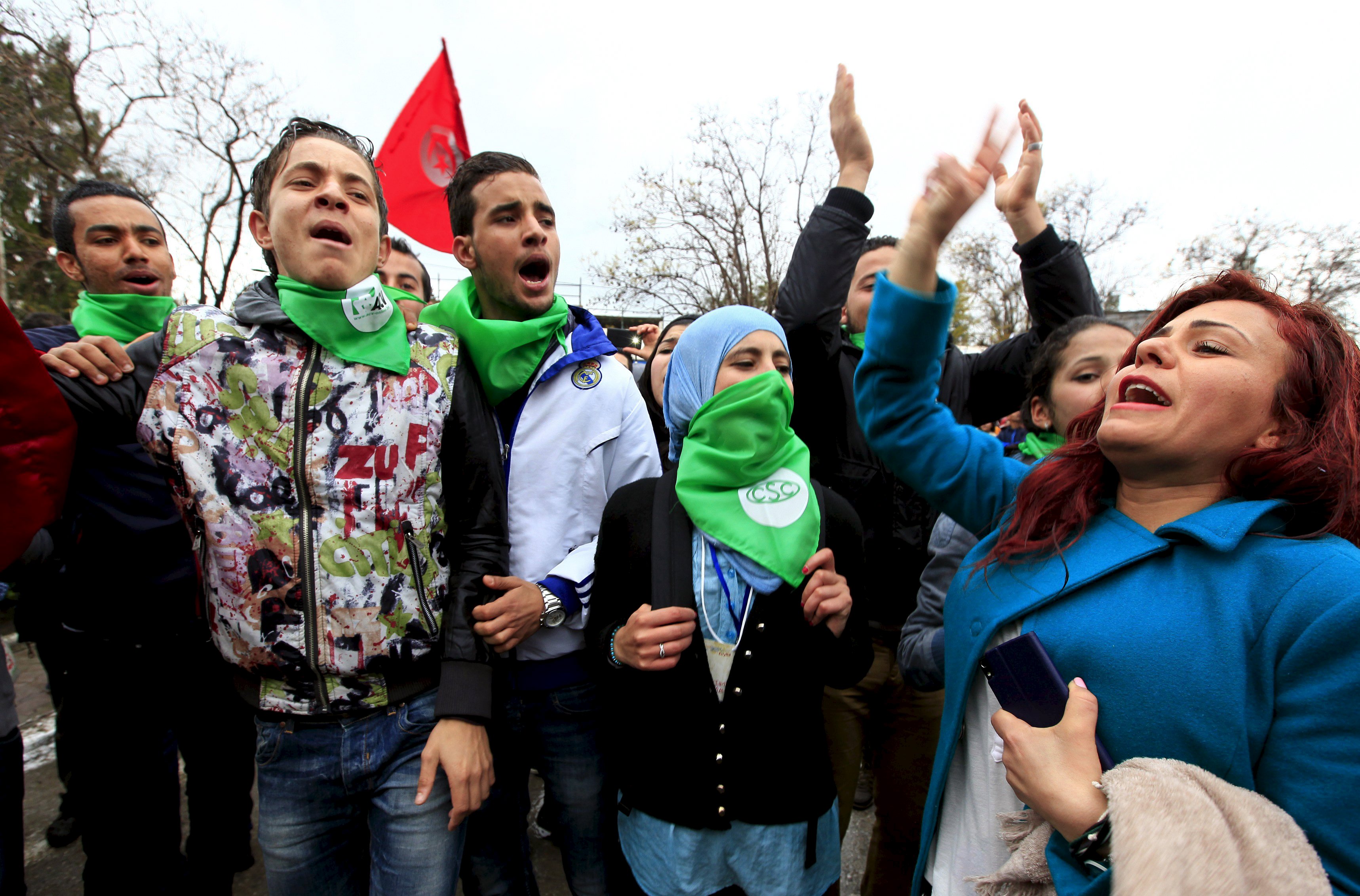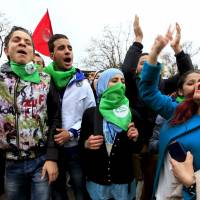Tunisia's Bardo museum held a ceremonial reopening on Tuesday a week after gunmen claiming alliance with Islamic State killed 20 foreign tourists in an attack aimed at destroying the country's tourism industry.
On March 18, at least two attackers opened fire on tourists from Spain, Japan, Italy and Colombia among other nations as they got off buses at the Bardo, in one of the worst attacks in the North African country for a decade.
Tunisians carrying national flags and "Visit Tunisia" signs gathered behind barricades outside the Bardo on Tuesday where dignitaries only were invited for a symbolic reopening with drummers and traditional pipe music under tight security.
"We don't have any fear, we just want to show solidarity with our country, the government and the Tunisian people," said Tunisian businessman Ali Degez, joining others at the barricades outside the Bardo in central Tunis.
The public reopening of the Bardo is expected this weekend.
The Bardo attack by gunmen trained in jihadi camps in Libya shocked Tunisia, which mostly managed to escape the upheaval of other Arab Spring countries four years after its revolt to topple autocrat Zine El-Abidine Ben Ali.
Tunisia has been hailed as a model for compromise politics between secular and Islamist politicians, approving a progressive new constitution and holding presidential and parliamentary elections last year.
But the attack underscored how Islamist militants are trying to turn their sights on North Africa as a new front beyond their main battlefield of Iraq and Syria. Already Islamic State loyalists are gaining a foothold in neighboring Libya.




